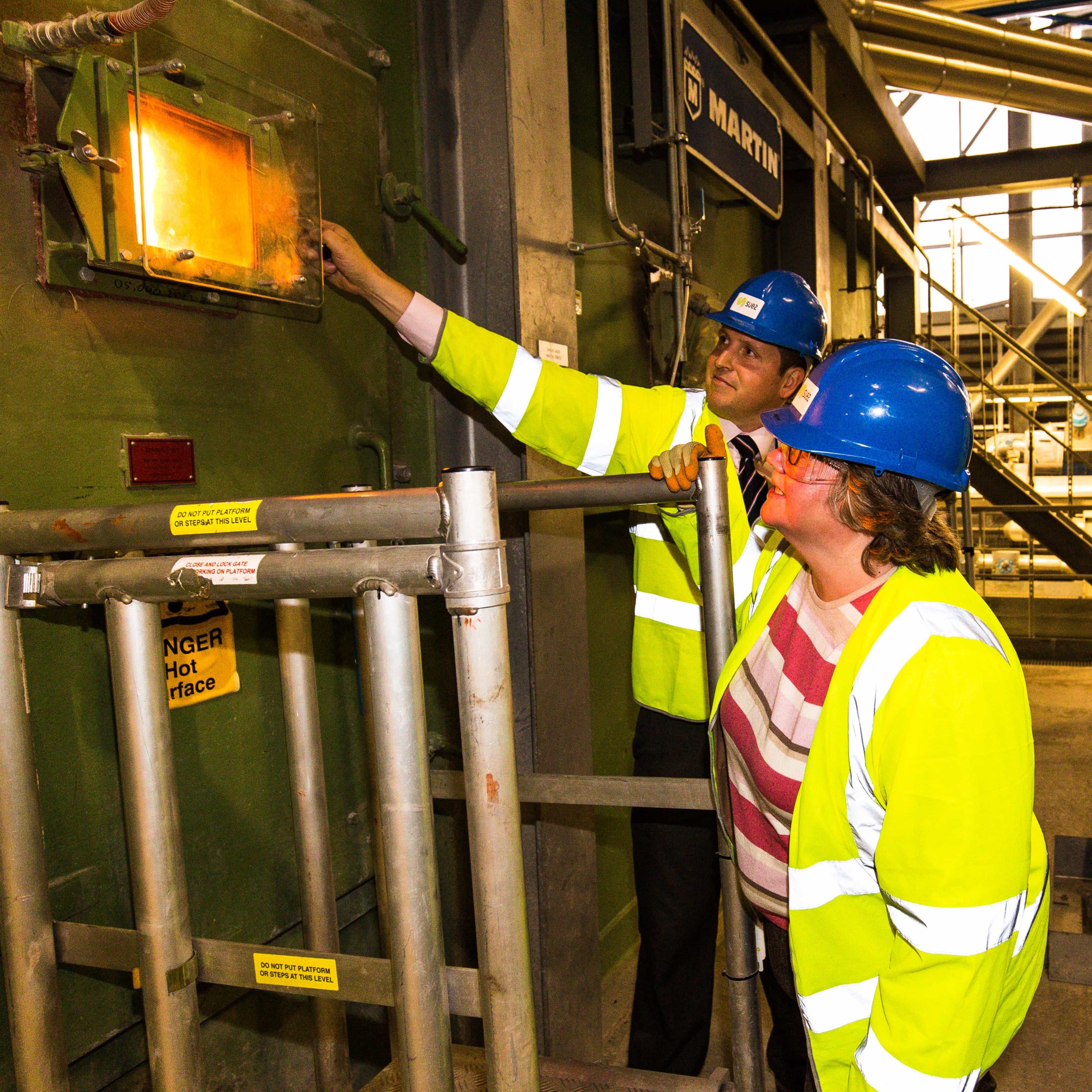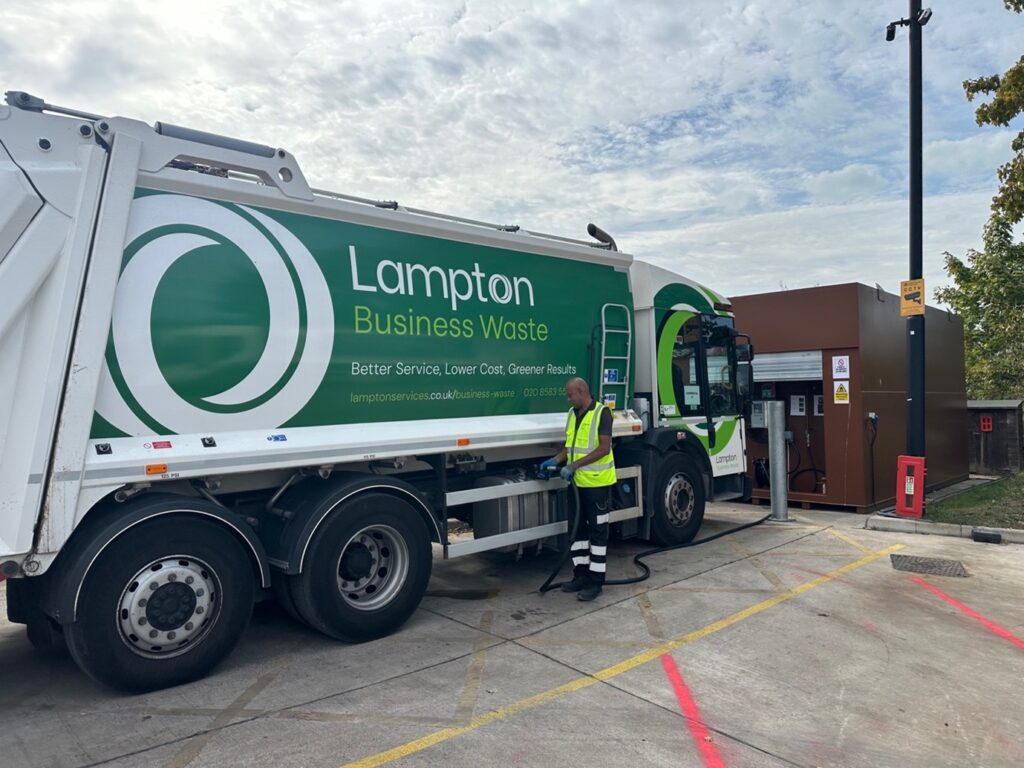
The minister visited the Great Blakenham energy-from-waste facility in Suffolk this morning, as she continues her fact-finding mission into the waste industry. The plant is operated by Suez on behalf of the Suffolk Waste Partnership, where the Minister was instructed on the energy-from-waste process.
During the visit, the minister met representatives from the Suffolk Waste Partnership, which manages waste on behalf of Suffolk county council and the seven district and borough councils in the region.
WRAP chief executive Marcus Gover also joined the group, following the launch of the organisation’s framework for harmonisation in recycling collections earlier this week (see letsrecycle.com story).
Framework
The framework sets out a series of three preferred options for councils to adopt to bring about consistency in collection systems in English councils.
Despite having yet to formally endorse the framework which was drawn up with the backing of the former resources minister Rory Stewart, following the visit Dr Coffey urged councils to consider ‘how best they can work together’ to encourage recycling.
She said: “I’m proud to be visiting the Suffolk Waste Partnership, a real leader in recycling, during Recycle Week. The partnership is a great example of how councils can come together to share and integrate services, help residents to recycle more and make the best use of our resources.

Defra minister; Matthew Hicks, Cabinet Member for Environment and Public Protection, Suffolk county council; Marcus Gover, chief executive, WRAP pictured during the minister’s visit to the Suffolk energy from waste facility (picture: Stephen Waller)
“As a nation we have made great progress in boosting our recycling rates. But we can and must do better. I encourage councils around the country to consider how they can work together to help residents recycle more.”
The Great Blakenham plant treats waste from the minister’s own Suffolk Coastal constituency and has the capacity to process over 269,000 tonnes of residual waste per year. It was built as part of a £1 billion, 25-year residual waste management contract signed between Suffolk county council and Suez – then SITA UK – in October 2010.









Subscribe for free